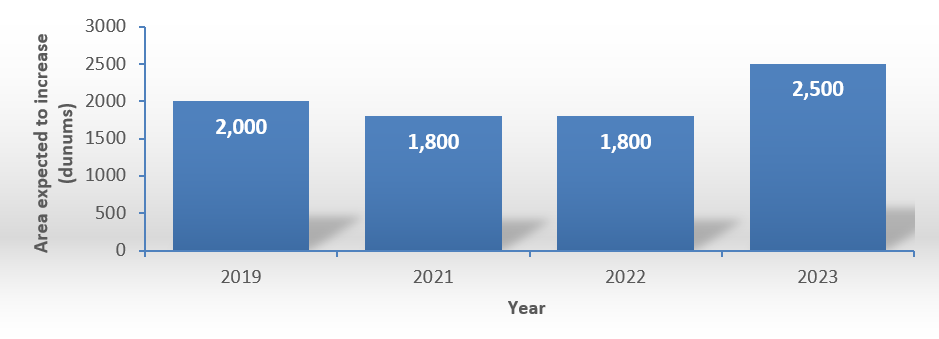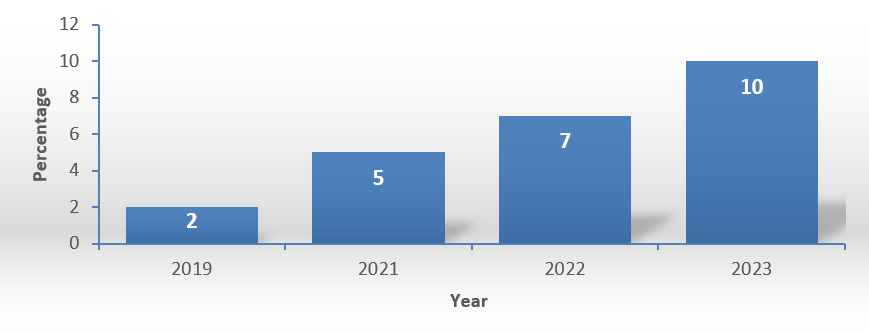The Palestinian Central Bureau of Statistics (PCBS)
Issues a Press Release on this Year’s World Environment Day on the theme of 'Only One Earth'
The World Environment Day (WED) is celebrated annually on the 5th of June since 1972. WED is the United Nations’ principal tool for encouraging worldwide awareness and action for the environment. Over the years, it has grown to be a broad, global platform for public outreach that is widely celebrated by relevant parties in more than 190 countries.
The celebration of (WED) under the theme "Only One Earth" calls for deep changes in policies and choices to enable living in harmony and sustainability with the environment. We only have one planet to live on, and Earth is our only habitat, so we have to protect its scarce/limited resources.
To achieve the theme of WED, understanding the environmental conditions, risks and challenges should be taken into consideration.
Even though Palestine is a small geographical area, it is characterized by a great variation in topography and climate. This variation is directly reflected in the distribution and diversification of agricultural and geographical patterns and ecosystems.
Preserving of Land through Agriculture
According to the primary results of the recent agricultural census 2021, cultivated land of agricultural holdings is 1,138.5 million dunums; about 18.9% of the whole area of the State of Palestine.
According to the Ministry of Agriculture, the annual increase in cultivated land is expected to reach 7,666 dunums during 2022, through reclamation and rehabilitation programs and greening projects, which contribute to improving the reality of the ecosystem and contribute to restoring it and limiting its deterioration.
In order to preserve the land, there is a plan to annually increase the area of irrigated agricultural land with treated wastewater by around 1,800 dunums during 2022.
The expected annual increase of agricultural land area irrigated with treated wastewater by year (in dunums)

Israeli violations of agricultural land
Despite the Palestinian procedures to improve the environmental status, the Israeli occupation continuously prohibits any improvement by confiscating and bulldozing Palestinian land to establish and expand settlements and outposts. The confiscated areas used as military bases and military-training sites represents about 18% of the area of the West Bank.
In 2021, the Israeli occupation authorities uprooted, destroyed, and burned about 19,000 trees, and conducted 30 bulldozing and arson operations of citizens' land, in addition to the building of illegal agricultural settlements on about 120,000 dunums of Palestinian land.
Data from the Palestinian Water Authority indicated that the amount of treated wastewater in the West Bank was about 12.4 million cubic meters during the year 2020. This percentage is expected to increase during the year 2023 to 25% of the total amount of produced wastewater through the establishment of wastewater treatment plants and improving the efficiency of the already existing plants.
The amount of reused wastewater amounted to 2.3 million cubic meters in 2020.
Israeli violations of the Palestinian environment
The Environment Quality Authority data indicated that during the previous three years until 2021, 67 cases of smuggled solid, liquid and hazardous waste, by trucks carrying solid waste and liquid waste perfusion tanks coming from Israeli areas were seized. In addition to chemical waste, used car tires, plastic and other dangerous waste.
These smuggling operations were concentrated in Hebron governorate with 13 cases, 12 cases in Nablus, 11 cases in Ramallah, and 8 cases in Qalqiliya. The rest of the cases were distributed among the rest of the governorates. It is worth noting that the process of smuggling hazardous waste into the Palestinian territories takes place in areas classified as C, which falls under the control of the Israeli occupation.
The Waste Sector
Data from the Ministry of Local Government indicate that the proportion of solid waste that is properly landfilled was 99% of the total waste produced during 2022. It is also expected that this percentage will reach 100% during the year 2023. This is done in 6 sanitary dumps in Palestine (4 in the West Bank and 2 in the Gaza Strip). The amount of produced solid waste was estimated at around 1.91 million tons in 2021 while the percentage of treated hazardous waste was 7% of the total waste produced during 2022, and it is expected to reach 10% by 2023.
The percentage of hazardous waste expected to be treated out of the total waste produced by year

Emissions
Overall GHG emissions in Palestine were 4,879.62 (1000 ton CO2 eq) in 2019, while per capita emissions of CO2 was 1.04 ton CO2 eq for the same year.
The Biodiversity Sector
The unique geography and geology of Palestine distinguish its biodiversity compared to neighboring countries. The Palestinian environment is characterized by rich biological diversity in terms of wild plants and animals. The area of land classified as forests reached 111 thousand dunums in 2020 compared to 320 thousand dunums in 1970. Settlements and military bases are the main reasons for this decrease.
The area of land classified as jungles amounted to about 320 thousand dunums of the total natural reserves, which are 51 protected areas, representing an area of 515 km2; about 9% of the State of Palestine.
 عربي
عربي